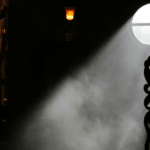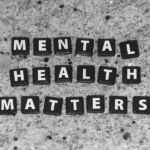Understanding legal accountability often involves examining whether a party has breached a duty. When a person or an entity violates the legal norm of care and causes harm to another person, that person or thing has committed a breach of duty.
To understand the breach of duty, it is essential to explore its definition, the conditions under which it applies, and the implications for legal disputes.
Defining a Breach of Duty
A breach of duty occurs when someone neglects their obligation to act reasonably and responsibly toward others, leading to injury or damage. This responsibility can vary depending on the parties’ relationship.
For example, a doctor owes their patients a higher standard of care than a passerby might owe to a stranger on the street. The breach typically centers on whether the defendant acted in a way that a reasonably prudent person would not have under similar circumstances.
Four essential components must be proven by the plaintiff in order to establish a duty breach in court: duty, breach, causation, and damages. The plaintiff must have been harmed by the defendant’s actions or inactions, a duty must have been owed, the duty must have been broken, and the harm must have resulted in quantifiable damages.
Examples of Breach of Duty
Medical Malpractice
Medical experts owe their patients a duty of care to provide treatment consistent with accepted medical standards. A breach occurs when a doctor or other healthcare provider fails to diagnose a condition, administers improper treatment, or makes critical errors during surgery.
For instance, leaving surgical instruments inside a patient is a clear breach of duty and can lead to severe health complications.
Premises Liability
Owners of real estate must keep their properties in good condition to guarantee guests’ safety. If a grocery store fails to promptly clean up a spilled liquid, leading to a customer’s injury, it could constitute a breach of duty. The property owner’s failure to address known hazards that a reasonable person would have remedied illustrates negligence.
Employer Negligence
Employers are obliged to give their workers a safe workplace. This includes adhering to safety regulations, maintaining equipment, and appropriately training workers. If an employer neglects these duties and an employee is injured, this breach can lead to legal consequences under workplace safety laws.
Determining Breach of Duty
The court typically evaluates breach of duty using the “reasonable person standard.” This hypothetical standard considers whether a reasonable person in the same situation would have acted similarly.
Factors influencing this assessment include:
- The nature of the relationship between the parties.
- The foreseeability of harm.
- The actions taken to mitigate risks.
In some cases, the law imposes a higher standard of care.
Professionals such as doctors, lawyers, and engineers must meet standards commensurate with their training and expertise. Professional negligence claims may arise if these requirements are not met.
Legal Consequences of Breach of Duty
When a breach of duty is proven, the defendant may be liable for damages. Compensation in such cases often includes medical expenses, lost wages, emotional distress, and other costs incurred due to the injury. Punitive damages may occasionally be granted in order to deter future occurrences of the same behavior.
The circumstances surrounding the breach and the degree of harm caused determine how severe the legal repercussions will be.
Final Thoughts
A breach of duty is a cornerstone of U.S. law, underpinning many civil and criminal cases. It holds individuals and entities accountable for harm caused by their failure to act responsibly. Courts can determine whether a breach occurred and award appropriate remedies by examining the duty owed, actions taken, and resulting harm.
A deeper understanding of these principles is crucial for anyone navigating legal disputes involving negligence or professional misconduct.
Disclaimer: The content in this article is provided for general knowledge. It does not constitute legal advice, and readers should seek advice from qualified legal professionals regarding particular cases or situations.
Published by Joshua F.



















